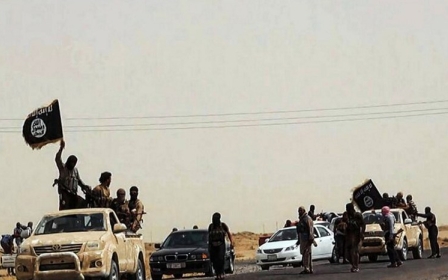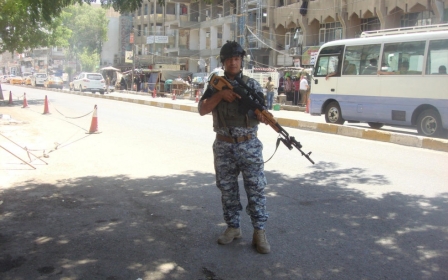The caliphate returns - or does it?

“Listen to your caliph and obey him. Support your state, which grows every day,” said Abu Mohamed al-Adnani, announcing the rebirth of the caliphate in the broad territory between Aleppo in northern Syria and Diyala province in eastern Iraq. It hasn’t actually grown much more in the past couple of weeks, but it certainly intends to go on expanding.
The radical Sunni Muslim organisation that conquered almost half of Iraq in a whirlwind week at the beginning of June has changed its name. Before, it was IS, the Islamic State in Iraq and al-Sham (the old Ottoman province that used to include Syria, Lebanon, Jordan and Israel). But now it wishes to be known simply as the “Islamic State” (IS) – for there can only be one such state, and it should include everywhere that Muslims have ever ruled.
IS propagandists have even produced a map showing the ultimate borders that their Islamic State lays claim to. Spain and Portugal will be part of it, because they were ruled by Muslim conquerors during much of the Middle Ages. Iran, too (although something will have to be done about all those Shia Muslims).
All of India except the southern tip should be under the rule of the Caliph, because Muslim invaders also ruled there as minorities for many centuries – and of course Serbia, Croatia and Hungary will be part of the Islamic State, for the Ottomans conquered all the Balkans up to there. Not to mention half of Africa, and Indonesia, and southwestern Siberia (which was once ruled by the Sibir Khanate for a century or so).
There’s no point in protesting that Muslims were never more than a small minority in many of these places, for the lads of IS believe that only Muslims – indeed, only Sunni Muslims – have rights. “The legality of all emirates, groups, states and organisations becomes null by the expansion of the caliphate’s authority and the arrival of its troops to their areas,” Adnani helpfully explained.
So much for the fantasy. What’s the reality? A group of jihadis have seized a big chunk of eastern Syria and western Iraq, erased the border between them, and declared an Islamic State. As little as 10,000 strong only a month ago, they have been rapidly growing in numbers as IS’s success attracts new recruits – but they are obviously never going to reconquer India, Spain or Siberia.
They aren’t going to make a dent in the two powerful states to the north of their Islamic State either. Iran, being overwhelmingly Shiite, is immune to their charms and far too big to take by force. Turkey, although now governed by an Islamic party, is still a modern, secular state that is much too strong to attack.
To the west and east, IS is already at war with regimes that are either very tough (Bashar al- Assad’s war-hardened dictatorship in western and central Syria) or very Shiite (the south-eastern slice of Iraq, densely populated and with a large Shiite majority). The Islamic State’s central position between its two enemies gives it a strategic advantage, but not a decisive one.
To the south are desert frontiers with more promising territory. Jordan’s population is about two-thirds Palestinian, and even among the Bedouin tribes that are the mainstay of King Abdullah’s rule there was some enthusiasm for IS’s victory in Iraq. If Jordan fell, the Islamic State would reach right up to Israel’s borders, with incalculable consequences.
Saudi Arabia would be a much tougher nut to crack, but the Salafi religious ideology that animates IS is very close to the fundamentalist Wahhabi version of Islam that is the Saudi state religion. That’s why the Saudis gave arms and money to IS jihadis in the early days of the Syrian civil war, although they have subsequently recognised the threat that the organisation poses to the Saudi state.
But even if IS gets very lucky, it is unlikely to get farther than that. Egypt blocks its expansion to the west, although the Ansar Bayt al-Maqdis extremists who are active in the Sinai peninsula undoubtedly have some ties with it. Even its direct rivals in the Refound-The-Caliphate business – the original al-Qaeda, al-Shabab in north-east Africa, Boko Haram in northern Nigeria, and their lesser brethren – are unlikely to accept the IS leader as caliph.
Abu Bakr al-Baghdadi, who now styles himself Caliph Ibrahim, has clearly been preparing himself for this moment for most of his adult life: he even chose the name of the first caliph, Abu Bakr, as his nom de guerre. His spokesman does not hide his soaring ambition: “We hereby clarify to the Muslims that with this declaration of Khilafah (caliphate), it is incumbent upon all Muslims to pledge allegiance to the Khalifah Ibrahim and support him.”
They are not going to do that, and the sheer radicalism and intolerance of IS’s members make it unlikely that their project will survive unaltered for more than a year or so even in the territory that now makes up the “Islamic State”. Nevertheless, it is extraordinary that the 7th-century caliphate has reappeared even fleetingly in the modern world. Bush and Blair have a lot to answer for.
- Gwynne Dyer is an independent journalist whose articles on world affairs are published in 45 countries.
The views expressed in this article belong to the author and do not necessarily reflect the editorial policy of Middle East Eye.
Photo Credit: IS fighters cheering their victory in Mosul (AFP)
New MEE newsletter: Jerusalem Dispatch
Sign up to get the latest insights and analysis on Israel-Palestine, alongside Turkey Unpacked and other MEE newsletters
Middle East Eye delivers independent and unrivalled coverage and analysis of the Middle East, North Africa and beyond. To learn more about republishing this content and the associated fees, please fill out this form. More about MEE can be found here.





